LEGAL MATTERS IN THE JEWISH COMMUNITY





It happens to all of us. For some, more often than others.
The reasons vary…it might be time to write a will, purchase a home, or establish a trust. Or, maybe a traffic accident (or violation) occurs, a dispute with neighbors brews, or an employment contract needs review. Not only do the reasons vary, they are seemingly countless.
We need an attorney…or rather, we need attorneys, as today most specialize in specific areas of law.
For this special Legal Matters section, Debbie Burke, copywriter for Jewish News, contacted several local attor neys about their practices and what, if any, new laws
might impact us in Virginia. The interviews with Deborah Casey, Andrew Fox, Tom Snyder, and Wayne Goodman begin on page 18. Their responses are interesting, infor mative, and uplifting as they all really seem to be happy working in their profession.
Around the country, Jewish groups are responding to recent Supreme Court rulings. In Kentucky, for example, Jewish women are suing to block the state’s abortion restrictions made possible by the overturn of Roe V. Wade this summer. The article is on page 22. In New York, a Jewish gun club is suing Gov. Kathy Hochul to allow
concealed weapons in synagogues. The article on page 26 explains that this is a response to Hochul’s response to the June Supreme Court decision that struck down New York’s strict concealed carry laws.
One of my favorite courses in college was Journalism and the Law. I found it fascinating, just as we at Jewish News hope you find this section.
Terri Denison Editor
Estate planning is more than numbers on a spreadsheet. It’s your life. And it’s how you transform your life’s work into a plan that protects your family and pays your values forward. At Kaufman & Canoles, our experienced Estate, Trust & Wealth Transfer team offers personalized business and financial advice—proactively planning, finding sophisticated solutions and creating a custom strategy that minimizes taxes both now and in the future. We can. And we will.®

regulatory issues impact everyone—from private citizen to business
employee to retiree, and it seems everybody in between. In this
section, Jewish News surveys a few local attorneys to find out what’s trending, what’s coming, and how to prepare for the legal issues that might be encountered at any stage of life. These attorneys share insights about city government, employment
law,
community associations.
Area of specialization: Community Associations
Jewish News: Where did you receive your education and what is your experience in law?
Deborah Casey: I graduated from the College of William and Mary School of Law. I went to Vandeventer Black as a first-year summer clerk and have been with the firm (now Woods Rogers Vandeventer Black PLC) for my entire 35-year career. I started in corporate/ business, moved to litigation, and then developed a community association law practice, which benefits from all of that experience and the other subject matter specialties of the firm.
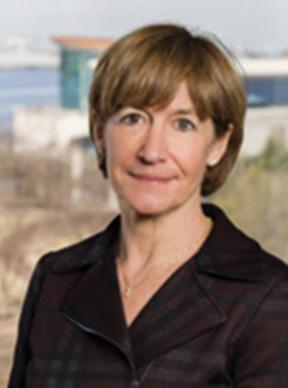
JN: Why did you go into this specialty?
DC: I started by accident and at a time when only a couple of practitioners knew about this highly nuanced area. It is really interesting and has evolved in the last 30 years. It covers the gambit of legal issues from real estate, contracts, and corporate law to construction, employment, finance, and litigation, and involves people and their homes.
JN: How common are POAs/HOAs in the Tidewater region?
DC: Very. Any home constructed since 1990 is probably in a community association.
JN: Could you name a few examples of typical sorts of cases you work on?
DC: I spend a lot of time interpreting doc uments to determine whether the owner
or association is responsible for differ ent building components, and counseling boards of directors on governance issues, best practices to avoid liability and litiga tion, preparing amendments to governing documents, revising rules, assisting with policy and implementation, and review ing contracts.

JN: Do you represent the associations or the residents?
DC: Associations mostly, to avoid poten tial conflicts.
JN: What proportion of your work concerns residents complying with asso ciation rules?
DC: While this is the stuff that makes headlines, it is a small percent of our overall practice.
JN: What proportion of your work con cerns environmental issues, and discuss a few of the major issues in this area?
DC: That ebbs and flows, but it is an increasing factor. Flooding and erosion are issues. The Green movement is affect ing associations with solar panels, electric vehicle charging stations, technology, and more.
JN: What should residents and property owners know about living with these
associations that they might not know?
DC: Review and be familiar with the governing document and rules. Not all associations are the same. The goal is community living and property value enhancement. Most association decisions are made by the Board [which is made up of] volunteers and fellow owners. Being involved in a community is the best way to stay informed and play a role.
JN: How has the unpredictable housing market affected your practice?
DC: It has not had an effect on our prac tice, which involves ongoing governance, management, business, and other issues unrelated to the market.
For more information, visit vanblacklaw.com.
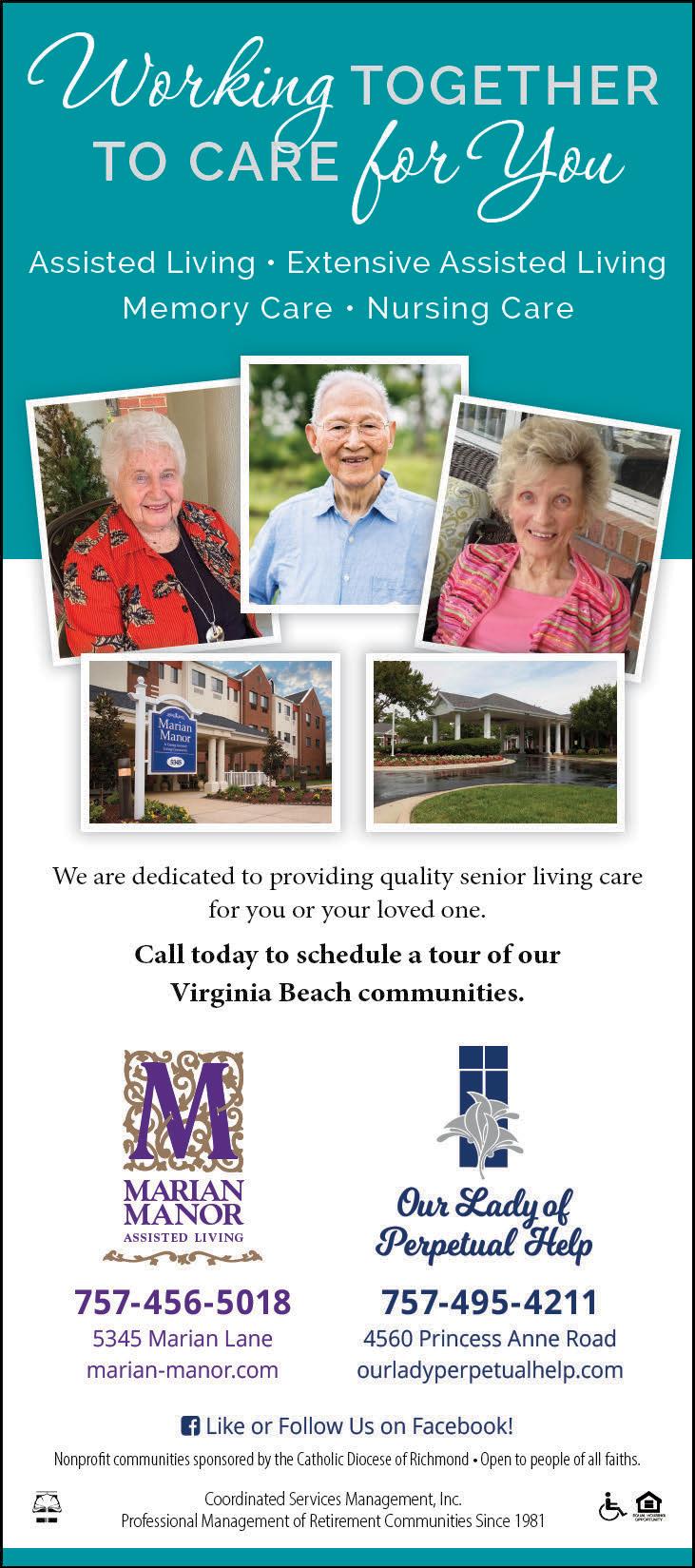
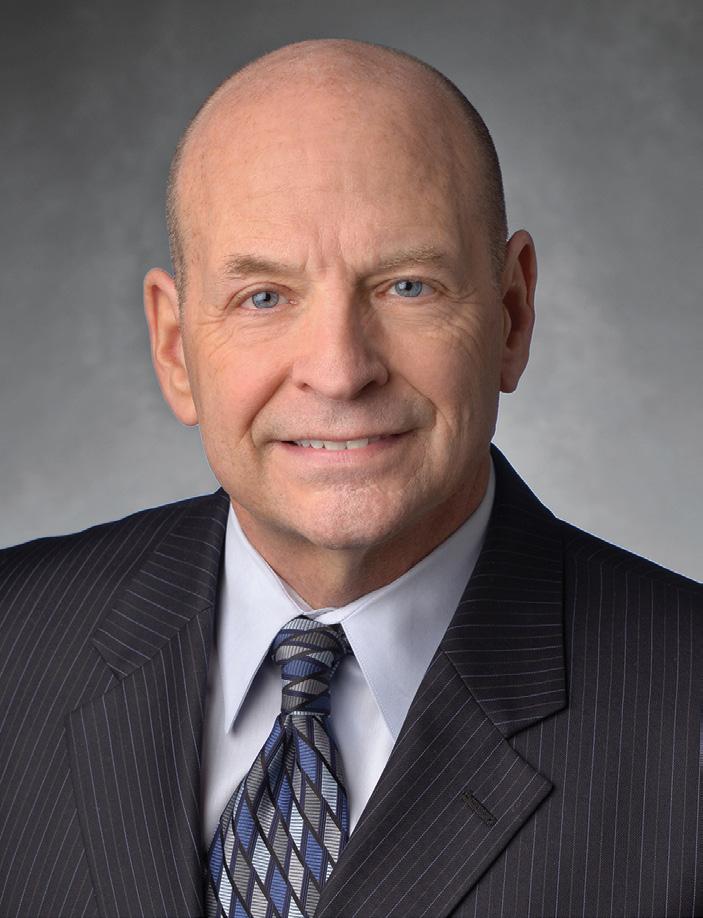
Area of specialization: Commercial Real Estate, Corporations and Business Law, Mergers and Acquisitions, Capital Formations, Finance and Franchising
Jewish News: Where did you receive your education and what is your experience in law?
Tom Snyder: I was born and raised in Norfolk, Virginia. Undergraduate school was Northwestern University in Evanston, Il., and law school was the University of Richmond. I started practicing with Clark & Stant, PC, which merged with Williams Mullen. I left in 2015 and have been a member of Inman & Strickler, PLC since.
JN: What are the new or upcoming laws and regulations that will affect both com mercial RE buyers and sellers?
TS: In the world of commercial real estate, the substantive law affecting real estate, taxation of transactions, and the law of the entities that own real estate remains very stable. (Had the Build Back Better bill passed Congress, that would have been a different story.) There have been changes to the Virginia (Residential) Landlord and Tenant act, which does affect the owners of apartment complexes in dealing with their tenants.
JN: How would you characterize activ ity today in the commercial realm in Tidewater, where we have a vibrant water front, a substantial military demographic, and other factors?
TS: The Tidewater commercial real estate market does tend to be less volatile than other markets in the country, and I do
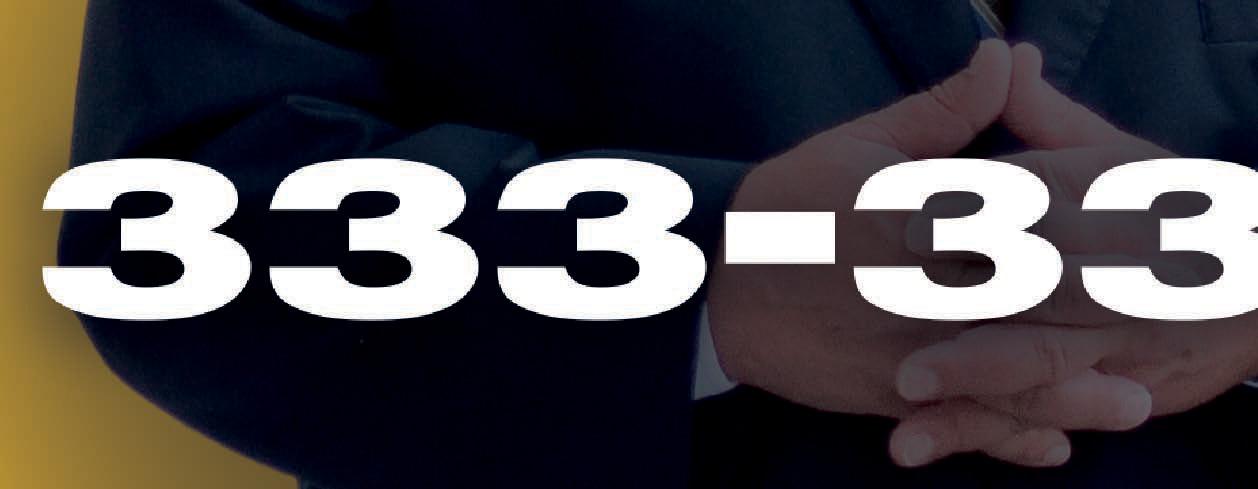
handle transactions in other parts of the country. At this point in time, with the economy teetering on a recession and inflation and interest rates soaring, it makes doing commercial real estate deals more difficult. On the other hand, it con strains the development of new supply, thus keeping the prices of commercial real estate high. Thus, deals are generally still occurring. Multifamily apartments seem to have their own separate rules, however.
JN: Are you seeing more franchise activity in this region or less compared with a year ago?
TS: Franchise activity seems to be some what down, following the trend of the economy in general. Also, many fran chises are food purveyors, and that industry is particularly hard hit and risky, and finding labor is really difficult.
JN: What are the typical cases you might

be involved in?
TS: I am personally involved in the buying, selling, and financing of com mercial properties and companies and disputes involving such matters. I also handle many general business transac tions, structuring, and organizing such matters and disputes among the owners.
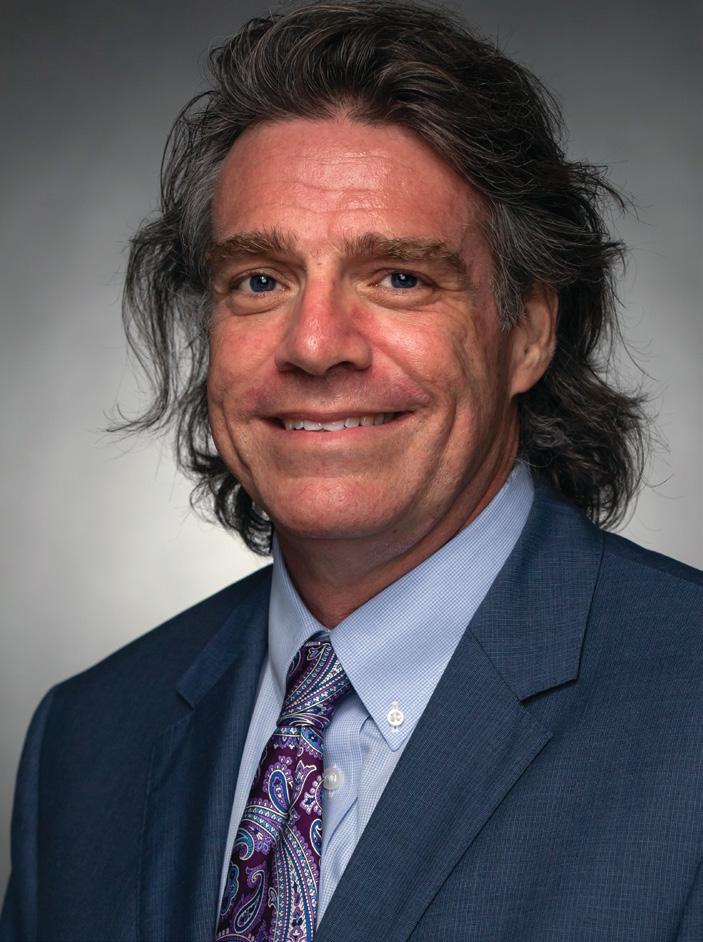



I just handled the sale of a building in Fort Lauderdale, Fla., and the sale of a closely held company whose headquar ters were here, but which had operations across the country. I am also involved with quite a few disputes. I would try to settle any dispute if possible, as litigation is extremely expensive and an inefficient way to resolve a dispute.
JN: What should business owners today know about mergers and acquisitions from a legal standpoint?



TS: The most important thing in an M&A deal is to have a competent attor ney and accountant to make sure you’re
getting what you think you’ve bargained for. Businesses are typically much more complicated to buy or sell, and there is a myriad of issues to address.
JN: Are there issues that specifically affect this region?
TS: This area has a lot of government con tractors, and there are unique regulatory issues they have in many instances.
JN: Why did you go into this specialty?



TS: I enjoy the variety of my legal prac tice, and solving problems is challenging and fun!
JN: Other comments?



TS: The private practice of law is uniquely challenging and rewarding, as any small business owner can attest.
For more information, visit inmanandstrickler.com.



Jewish News: Where did you receive your education and what is your experience in law?







Andrew Fox: I am a graduate of Cornell University and William & Mary Law School. I have practiced employment and municipal law exclusively since 2004 for the cities of Norfolk and Chesapeake, and also served as an adjunct professor of law at William & Mary and Washington & Lee law schools for more than 10 years. Prior to law school, I served as a Surface Warfare Officer in the U.S. Navy.
JN: What are some of the major issues that come into your office facing Norfolk residents today?
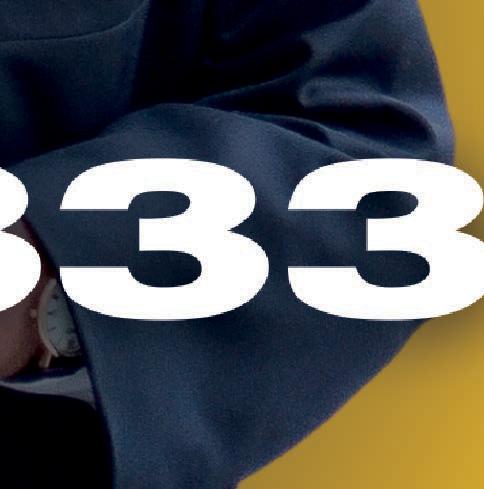


AF: Norfolk seems to constantly be a city in transition, and our office is very involved in both major projects like redevelopment of the St. Paul’s public housing area, Military Circle Mall, and the HeadWaters Casino, and neighbor hood-level issues such as reducing crime, addressing poverty, and increasing oppor tunities for historically underrepresented populations in our city. I am also privi leged to represent the Chrysler Museum of Art, Seven Venues, and Nauticus –cultural amenities that really set Norfolk apart from other cities in the region, in my opinion.
JN: Same questions, re: business owners and professionals?

AF: As a densely populated city with

a rich but complicated history, Norfolk depends on citizen engagement and coop eration to thrive and improve. Business owners should rely on professionals (architects, engineers, environmental con sultants, etc.) who are familiar with the city’s zoning, construction, and tax codes, and conduct extensive outreach to civic leagues and other neighborhood groups affected by their projects.
JN: What do people need to know about how your department works?
AF: We are a team of dedicated profes sionals who support every department and agency within the city. We counsel our clients to follow established policies and procedures and to be fair and equita ble in everything they do.

JN: Those who are in litigation with the City of Norfolk, can you name a few of the top cases that have had a significant impact on those who live, work, and do business here?
AF: As with many cities, Norfolk saw an increase in litigation related to use of force by police officers in recent years and has widely deployed body-worn cameras in an effort to protect both the public and officers. The city recently settled a case with a group of concerned citizens in which it agreed to provide additional resources to residents of the St. Paul’s public housing projects during the his toric redevelopment of that area. Most city-related litigation is more in the nature of business disputes related to construc tion and business development projects.
JN: Are there any laws that are soon to be enacted or changed in the City of Norfolk that will impact residents and business owners?
AF: Due to Virginia being a “Dillon Rule” state, the city is very limited as to what it can legislate. We are currently starting the process of updating our Comprehensive Plan, which is a city-wide overview of how
the city will be developed and redevel oped over the next 20 years. We are also working to make zoning and permitting processes more efficient and transparent.
JN: What do you like about your job?
AF: I enjoy spending every day support ing the city where I live, work, and play to continue to be the cultural and business hub of our region, as well as working in a team-first environment with great ben efits and very good quality of life. I get to work in a wide variety of areas and am given the time and resources necessary to perform high-quality legal work for a client I believe in.
JN: Other comments?
AF: I am very proud to be a member of our local “Jewish bar” and very fortunate to have had the opportunity to know mem bers of our community who have been recognized as exemplifying professional ism and civility such as Alan Rashkind, Hal Juren, and Robert Nusbaum (z”l), to name just a few.
For information, visit norfolkgov.com.
JN: Why did you go into this specialty?
WG: I do not hold myself out necessarily as a “legal specialist in the coffee industry” or a “food and beverage industry attorney.” Rather, my work is of a basic and broad corporate nature. My title actually reflects that: General Counsel. In truth, I am a “generalist” business attorney. What that means is that I am expected to recognize when legal issues present themselves, and what the company’s legal needs are, and to ensure that they are properly addressed.
JN: What are the typical kinds of issues that occur in food manufacturing that in-house attorneys might handle?
WG: The world of food and food manu facturing is highly regulated! Multiple and complex laws and regulations are in place all over the country which are relevant to and govern the business. A challenging exercise for a lawyer working in this space is the need to ensure compliance with all of them, which can vary greatly from state to state.
JN: Do you handle all legal issues in the company including HR issues, Workers Comp, etc.?
JN: What are the trends/new laws that those in your industry (food and bever age) should be aware of?
WG: A significant and adverse trend is the increasing amount of litigation in this country against food manufacturers and retailers that sell their products. The plaintiff bar bringing these lawsuits is very active, and many of them are in the nature of a class-action lawsuit where the potential hit to a defendant can increase dramatically. Even though many of these cases would be considered meritless if not frivolous, they still cost a lot of money, and take a lot of time, to defend against and dispose of.
JN: Does a global company like yours need to be knowledgeable in the legal issues that come with doing business in other countries (and being headquartered in Europe)?
WG: While getting yourself up to speed on a general basis is helpful, the answer is no, not necessarily. When the need for me arises to work in the international arena where another country’s law is con trolling, I engage external counsel in that country to work with me.
WAYNE GOODMAN MASSIMO ZANETTI BEVERAGE USA General CounselJewish News: Where were you educated and what is your experience in law?
Wayne Goodman: I am a Norfolk native who lived and worked away before moving back to the area about 20 years ago. I went to law school in Atlanta at Emory University and then spent many years working in Atlanta before return ing to Greater Norfolk. Most of my four decades-plus legal career has been in an in-house capacity and it is a role that I have enjoyed tremendously. During my Atlanta years, my family and I moved to and lived in Hong Kong for nearly five years, where I ran the Asia-Pacific Legal Department of my Atlanta-based global employer. I feel very fortunate with the career, opportunities, and experiences that I have had.
WG: As the company’s General Counsel, my job is to ensure that all of the company’s legal needs are met. Am I sin gle-handedly able, or personally equipped knowledge-wise, to do everything? Of course not! I engage and work with a wide array of both local and non-local external counsel on matters where either a time constraint is involved or where a par ticular matter is beyond the scope of my personal expertise. Examples of matters which fall into the latter group include litigation, certain human resources issues, some intellectual property work, and others.
JN: What do you enjoy most about your position?
WG: The variety of work—from general contract, to marketing and sales, com mercial real estate, M&A, banking and finance, etc. I am exposed to a lot of dif ferent matters at all times and that keeps things new and interesting. I also enjoy my diverse client base here within the organization.
For more information, visit mzb-usa.com.

(JTA)—Three Jewish women have sued to protest Kentucky’s restrictive abortion laws on religious freedom grounds, argu ing that they violate Jewish teachings as to when life begins and place undue burdens on their ability to use in vitro fertilization to achieve pregnancy.
The suit is at least the third religious freedom lawsuit to be filed by Jews against a state abortion restriction since the U.S. Supreme Court overturned Roe v. Wade this summer. It follows a synagogue’s challenge to Florida’s laws and a Jewish pro-choice group’s lawsuit in Indiana.
The Kentucky suit challenges the state’s current law, which was written to go into effect following the Supreme Court’s ruling that ended a constitutional
right to abortion; the law bans all abor tions after six weeks of pregnancy, with very few exceptions, and defines life as beginning at the moment of fertilization.
The law also forbids the disposal of unborn life “throughout the entire embry onic and fetal stage”—leaving women and their doctors concerned about the implications of IVF, which can result in surplus embryos.
The women behind the lawsuit—Lisa Sobel, Jessica Kalb, and Sarah Baron— argue that Kentucky’s definition of when life begins does not comport with Jewish law. They also argue that the law inter feres with their religious freedom, they say, because the state would force them to continue to pay to keep embryos pro duced through IVF frozen indefinitely.
“As a mom, as a woman, this directly
pleased to welcome Ari Stein as a partner with our firm.
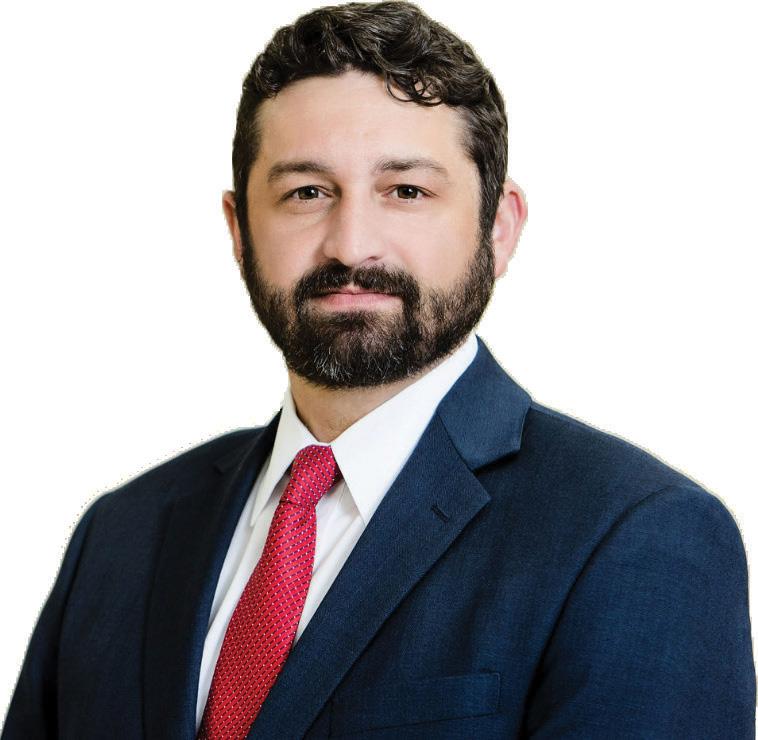
a former general counsel for a corporation based in Hampton Roads, Ari has learned about the challenges businesses face every day. As a skilled litigator, Ari knows how to use that knowledge to get results for his business
affects me, it affects my health care,” Sobel told the Louisville Courier-Journal. “And then it’s a personal affront to my personal religious views, on top of it. As somebody who is a person of faith, that’s just wrong to me.”
“Plaintiff’s religious beliefs demand that they have more children through IVF, yet the law forces Plaintiffs to spend exorbitant fees to keep their embryos frozen indefinitely or face potential felony charges,” the lawsuit states. The three plaintiffs are all in their 30s and say they must rely on IVF for future pregnancies to avoid health risks; Sobel says she and her husband can’t conceive any other way.
While Jewish law is still developing around IVF, most rabbinic opinions agree that embryo donation, an option that some anti-abortion activists urge, is prob lematic according to halacha, or Jewish law, because of the outside possibility that it could result in unintended incest in the future. They also tend to agree that pas sively allowing embryos to be destroyed, such as by not refrigerating them, is permissible.
Claiming the state abortion law “sub stantially burdens” the plaintiffs’ right to religious expression, the suit also says the law is in violation of Kentucky’s Religious Freedom Restoration Act, as well as vio lating the state’s constitution by granting preference to “theocratic” Christian teach ings over other religious beliefs.
The Kentucky lawsuit is part of a newly emerging trend of Jews hoping to use religious freedom protections as a pressure point against state abortion restrictions driven largely by Christian activism. A nondenominational congre gation in Florida sued that state over its abortion law in June, saying that its 15-week abortion ban “prohibits Jewish women from practicing their faith free of government intrusion and this vio lates their privacy rights and religious freedom.”
law banning abortions in the state with very few exceptions. That lawsuit, backed by the American Civil Liberties Union, also claimed that the abortion law (which had not yet gone into effect) was in vio lation of the state’s Religious Freedom Restoration Act.
And last month, Hoosier Jews For Choice, a newly formed Indiana Jewish abortion-rights group, sued over Indiana’s
American Jews support abortion rights more than any other religious group, according to polling. Non-Orthodox Jews have been at the fore of advocacy against the current sweep of abortion legisla tion, while some Orthodox groups have said they applaud the Dobbs v. Jackson decision while still believing that abor tion should be permitted in some cases. Scholars of Jewish law largely agree that it requires abortion when the pregnant person’s health is at risk, though there is disagreement about what constitutes such a risk.
The Kentucky lawsuit is part of a newly emerging trend of Jews hoping to use religious freedom protections as a pressure point against state abortion restrictions driven largely by Christian activism.




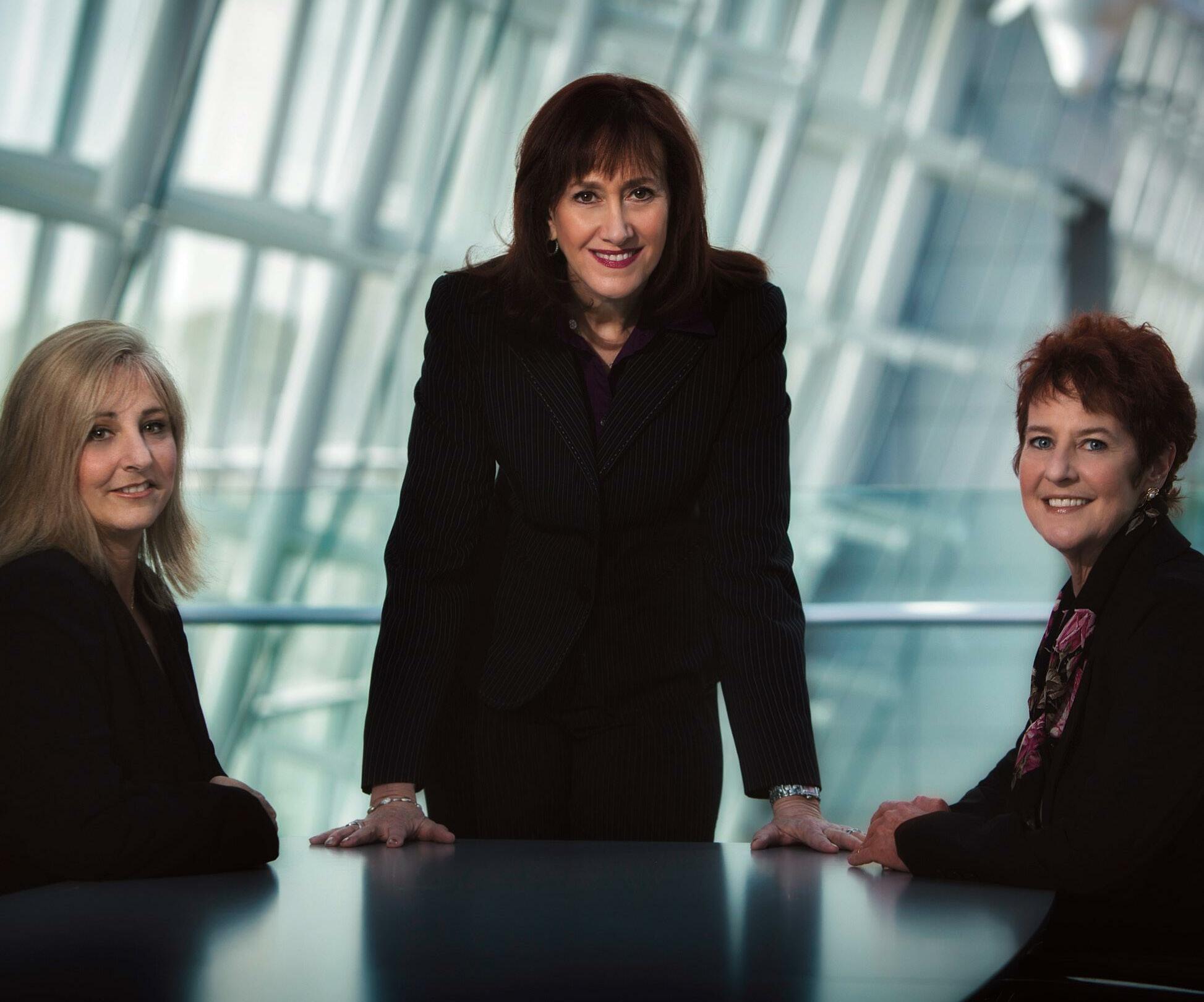
WASHINGTON (JTA)—A number of Orthodox Jewish groups are filing friend of the court briefs on behalf of an evan gelical Christian postal worker who is taking his case to get Sundays off to the Supreme Court.
The case, Groff v. DeJoy, seeks to expand the standard the Supreme Court set in a 1977 ruling regarding what con stituted “undue hardship” to an employer in providing religious accommoda tion. Five years earlier, Congress had expanded the 1964 Civil Rights Act to guarantee freedom from discrimination based on religion, as long as employers would not face “undue hardship.” But it did not define the term.
Groff v. DeJoy involves a Pennsylvania mailman who sought accommodations after the U.S. Postal Service in 2013 started Sunday deliveries on behalf of Amazon. At first, Gerald Groff was able to work around Sunday deliveries, but as demand for the service grew, USPS disci plined him for declining Sunday shifts. He quit and sued. (Louis DeJoy is the postmaster general.)
Lower courts have ruled in favor of the post office, which is arguing that not being able to schedule a mail career to work Sunday shifts represents an undue hardship. Groff appealed to the Supreme Court, which has yet to say whether it will consider the case. Three conser vative justices—Samuel Alito, Clarence Thomas, and Neil Gorsuch—have indi cated an interest in revisiting the 1977 decision, but the court requires four of its nine justices to agree to consider a case.
Now, the Orthodox groups are joining a number of conservative religious groups filing amicus briefs in support of Groff. They see the case as a chance to over turn Trans World Airlines v. Hardison, the 1977 decision that ruled for the airline over a member of a Christian sect
who sought Saturdays off, rejecting as “undue hardships” three possible accom modations posited by a lower court: allowing the employee a four-day work week; paying other employees overtime to fill his shift; or setting aside in certain instances a seniority system negotiated with the union that would have allowed the employee to leapfrog more senior employees in seeking Saturdays off.
Religious groups have since then been seeking opportunities to recon sider TWA v. Hardison, saying that by rejecting those three accommodations the Supreme Court rendered meaningless the 1972 expansion of the Civil Rights Act.
The Orthodox Union joined the Seventh Day Adventist Church in one amicus brief. (The Adventists mark Sabbath on Saturdays). The Jewish Commission on Law and Public Affairs, which represents a number of Orthodox groups, including Agudath Israel of America, spearheaded another amicus brief. The Jewish Coalition for Religious Liberty, a politically conservative nonde nominational group, joined the Thomas More Society, a Roman Catholic legal advocacy group, in another amicus brief.

The Jewish Commission in its brief said that the 1977 TWA v. Hardison decision “has curtailed careers, closed avenues to success, and damaged the lives of many individuals who are unwill ing to compromise their faith.”
The Orthodox Union-Seventh Day Adventist brief notes that minority faiths which do not mark the Sabbath on Sunday are likelier to face discrimination because society tends to accommodate Sunday worship. “Majority religious practices are accommodated by default, while minority religious practices—like observing the Sabbath on Saturday rather than on Sunday—are not,” the brief says. “And that is where Hardison hurts employees the most.”
(JTA)—Since March, Rabbi Daniel Litvak has been required to appear three times a week at the magistrate’s office in Porto, the Portuguese city where he is accused of submitting fraudulent citizenship appli cations for Sephardic Jews. His passports were confiscated and he was barred from contacting the lawyer who is the other defendant in the criminal case against him.
Now, an appeals court in Lisbon has ruled that Litvak does not need to abide by the stringent restrictions. The court also criticized Portuguese prosecutors for how they have handled the case against Litvak, according to the Portuguese news paper Expresso
Litvak’s arrest was related to inquiries into how Roman Abramovich, a Russian Jewish oligarch, was able to gain Portuguese citizenship.
“It is said that the accused, in the exercise of his functions, had privileged knowledge and connections…which allowed him to give priority to requests for the acquisition of nationality to Sephardic Jews,” the judg ment said, according to Expresso. “But there is not a single fact to materialize this conclu sion, namely which officials had privileged links with the applicant and, more impor tantly, what such knowledge and privileges consisted of.”
The decision does not end the criminal case against Litvak, an Argentine-Israeli who was arrested in March while prepar ing to travel to Israel. But it means he is free to leave the country, and it deals a significant blow to the prosecution of a case that a Porto Jewish leader called “the greatest attack against a Jewish commu nity in Europe in the 21st century.”
Litvak’s arrest was related to inquiries by multiple Portuguese agencies into how Roman Abramovich, a Russian Jewish oligarch, was able to gain Portuguese citizenship under the country’s 2013 law allowing naturalization for descendants
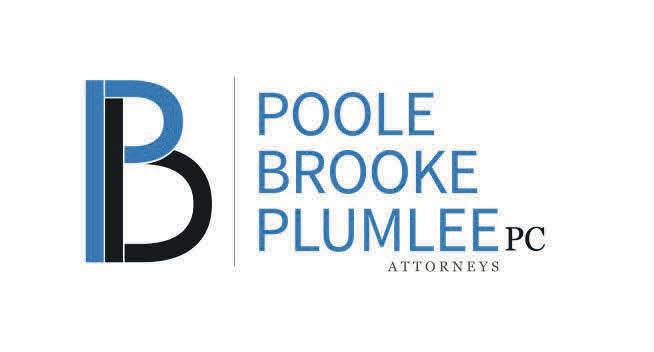
of Sephardic Jews. The law represented an attempt to atone for the Inquisition, a campaign of religious persecution in Spain and Portugal in the 16th century that forced tens of thousands of Jews to emigrate, hide their Jewish identity or denounce it altogether.
The government delegated the task of vetting applications for citizenship to two groups, the Jewish Community of Lisbon and Litvak’s organization in Porto. Tens of thousands of applicants have become Portuguese citizens under the law—which helped turn Porto into a Jewish destination—and with their fees of 250 euros each, the applicants have helped reverse the local Jewish communi ty’s cash-flow challenges.
Abramovich’s citizenship—which gave him a European Union passport for the first time—raised questions because most Russian Jews are Ashkenazi and do not have Sephardic roots. But Litvak said in January that he was certain an investi gation would show that his organization had assessed Abramovich’s application as it would anyone else’s.
Litvak’s arrest several weeks later on charges of tax fraud, falsification of doc uments, money laundering and other crimes took place shortly after Russia invaded Ukraine, bringing to the fore questions about whether Russians such as Abramovich with close ties to President Vladimir Putin could flee their country.
The ensuing case has drawn attention to divisions between the communities in Porto and Lisbon. In June, the head of the Jewish Community of Porto said in a letter to lawmakers that the probe into Litvak and the community was “the great est attack against a Jewish community in Europe in the 21st century,” and “was per petrating a Holocaust against families.” A former leader of the Jewish community of Lisbon publicly dismissed Senderowicz’s allegations as baseless and “absurd.”
After Litvak’s arrest, his group announced that it would not process any more Sephardic citizenship applications,
leaving only the Jewish Community of Lisbon with the right to naturalize the descendants of Sephardic Jews. It is unclear how many applications are
currently pending with the Jewish Community of Porto, which has handled thousands of such applications since the citizenship law went into effect in 2015.
(New York Jewish Week)—A group of Jewish gun owners filed a lawsuit last month against Gov. Kathy Hochul’s gun
laws, saying they infringe on their reli gious freedom as well as their right to bear arms.
The New York State Jewish Gun Club, a Rockland County-based firearms
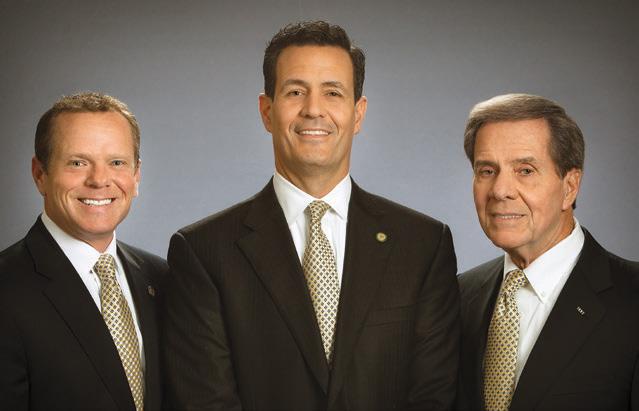
club, funded and put together the law suit, which was filed on Sept. 29 in the Southern District of New York. It specif ically targets the section of the new gun laws that prohibits the carrying of con cealed weapons in “sensitive locations,” including houses of worship.

“New York State has expressed that legal carry in New York is okay, but not for those who observe religious rituals and customs,” a NYS-JGC press release said. “This law specifically targets reli gious people, by threatening them with arrest and felony prosecution if they carry their firearm while engaging in religious observance.”
in the house of the Lord,” the passage reads. “And the couriers stood, each one with his weapons in his hand, from the right end of the house to the left end of the house, before the altar and the house, surrounding the king.”
The lawsuit also lists multiple instances of violence against Jews, including the 2019 stabbing in Rockland County’s Orthodox neighborhood of Monsey, which led to a rise in gun ownership within the area. It also references an AntiDefamation League report showing that New York led the nation in total reported antisemitic incidents in 2021.

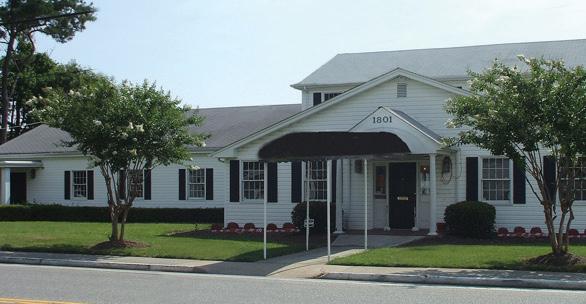


Making your arrangements in advance is one of the best ways to show your loved ones that you care about them. Our Family Service Counselors have the training and experience that will help you in the process. Our services include a free funeral cost estimate, and we offer many options for financing. Visit our web site for a three-step Pre-Arrangement Guide or contact the Altmeyer Pre-Arrangement Center directly at 757 422-4000
In July, Hochul signed the Concealed Carry Improvement Act into law in response to the June Supreme Court deci sion that struck down New York’s strict concealed carry laws. The CCIA law added multiple checks on gun ownership in New York State, including strengthening eligibility requirements and prohibit ing concealed carry permit holders from bringing their firearms into bars, libraries, schools, government buildings, hospitals, and houses of worship.
Tzvi Waldman, who is Orthodox and the founder of the gun club, told the New York Jewish Week that he is hoping for “immediate relief” with the lawsuit.
“I feel pretty confident in this case,” Waldman said. “People are concerned. This is a constitutional right and it’s extremely real to us.”
Steven Goldstein, president of the Orthodox Congregation Bnei Matisyahu in Brooklyn and Meir Ornstein, a Rockland County resident, are listed as the plaintiffs in the lawsuit.
New York Attorney General Letitia James and New York City Police Department Commissioner Keechant Sewell are listed as defendants alongside Hochul.
The lawsuit opens with a quote from Kings II in the Hebrew Bible.
“And the priest gave the officers of the hundreds, the spears and the shields that had belonged to King David, which were
Waldman said a judge denied the group’s request for a temporary restrain ing order to stop enforcement of the law, but scheduled a hearing for Oct. 28.
“We are in it to win it,” Waldman said. “We’re not just going to roll over.”
The governor’s office did not respond to a request for comment. “New York is leading the way in the fight to reduce gun violence and save lives,” Lt. Gov. Antonio Delgado said when Hochul announced the new concealed carry law. “We want to ensure that all members of our com munities are safe, and these new conceal and carry laws will help prevent tragedies by ensuring that gun owners are properly trained, that safety measures are pro moted and that firearms are not carried into sensitive locations.”
The Supreme Court has not yet weighed in on whether state laws bar ring guns in sensitive locations, including houses of worship, are constitutional.

“That’s going to be an important and interesting battlefield going forward for Second Amendment cases,” Joseph Blocher, a professor at Duke Law School, told CBS News.
A Siena College poll in June found that New Yorkers support the new gun laws by an overwhelming margin. A national survey of Jewish voters released last month found that 77 percent believed gun laws in the United States are not restrictive enough.